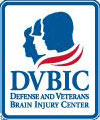Tagged with “veterans brain injury”
May 16, 2018
In a propensity-matched cohort study of more than 350,000 veterans with and without traumatic brain injuries (TBI), mild traumatic brain injury (mTBI) without loss of consciousness was associated with more than a twofold increase in the risk of a dementia diagnosis, even after adjusting for medical and psychiatric co-morbidities. This large epidemiological study was recently published in JAMA Neurology. Approximately 2.8 million TBIs occur each year in the United States; approximately 80% are in the “mild” category.
Although prior studies of the association between mTBI and dementia have been mixed, this study, among the largest epidemiological studies to date, adds to the weight of evidence suggesting that even mild TBI is associated with an increased dementia diagnosis risk. Read More
January 4, 2016
On December 22, Fred Upton, Chair of the House of Representatives Energy and Commerce Committee announced that his committee with commence a “broad review” of concussion science in 2016. Read More
July 15, 2014
Several recent developments demonstrate increasing recognition of the serious potential consequences of concussion, and commitment to minimize those consequences through appropriate treatment of concussion:
-
Physicians have an ethical obligation to become knowledgeable about concussion.
On June 9, 2014 the American Academy of Neurology, the largest professional association of neurologists, released a position paper stating that doctors have an ethical obligation to educate and protect athletes from sports concussion and clear them to play only when the athlete is medically ready, standing firm against objections from players, athletes and coaches. The statement declares that sports concussion “is a major issue in the world of health care” and requires more attention from physicians. Read More
February 4, 2014
 On January 23, 2014 the Defense and Veterans Brain Injury Center released new clinical recommendations with a standardized approach for concussion recovery. Included in the recommendations for managing concussion symptoms is a first of its kind five-stage approach for return to activity following a concussion. Detailed “do”s and “do not”s are specified for each stage. Movement from stage to stage is determined by scores on a simple twenty-two item “neurobehavioral symptom inventory” included in the recommendations. Read More
On January 23, 2014 the Defense and Veterans Brain Injury Center released new clinical recommendations with a standardized approach for concussion recovery. Included in the recommendations for managing concussion symptoms is a first of its kind five-stage approach for return to activity following a concussion. Detailed “do”s and “do not”s are specified for each stage. Movement from stage to stage is determined by scores on a simple twenty-two item “neurobehavioral symptom inventory” included in the recommendations. Read More

